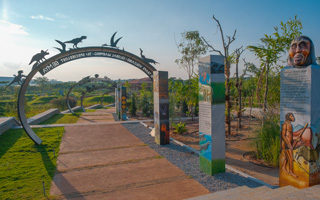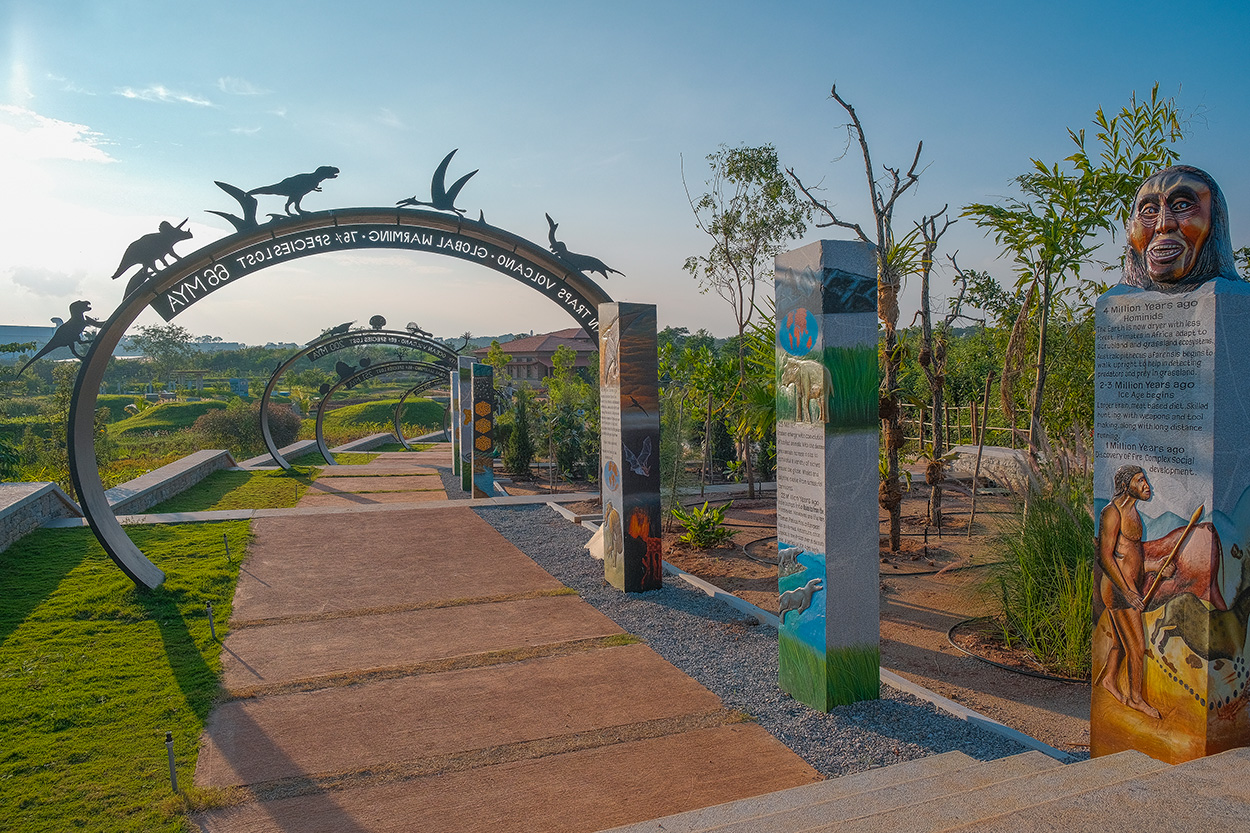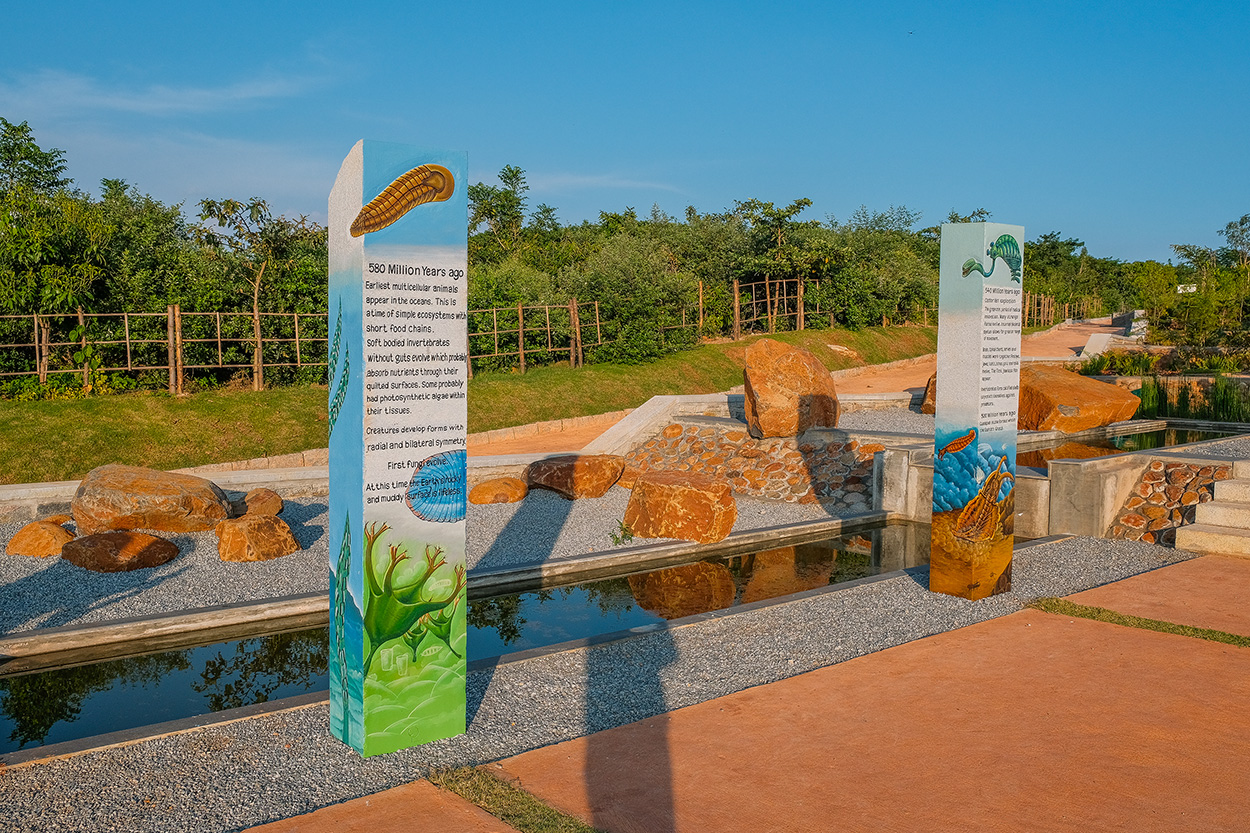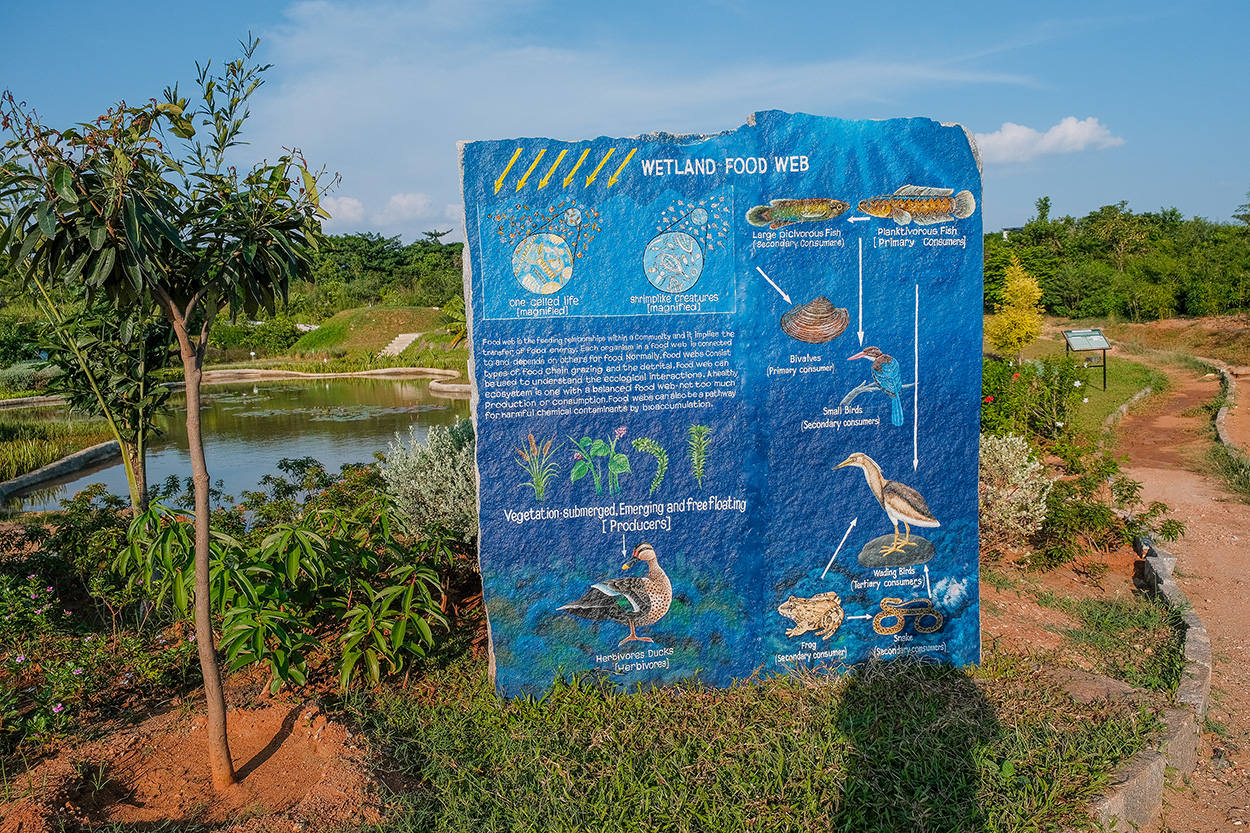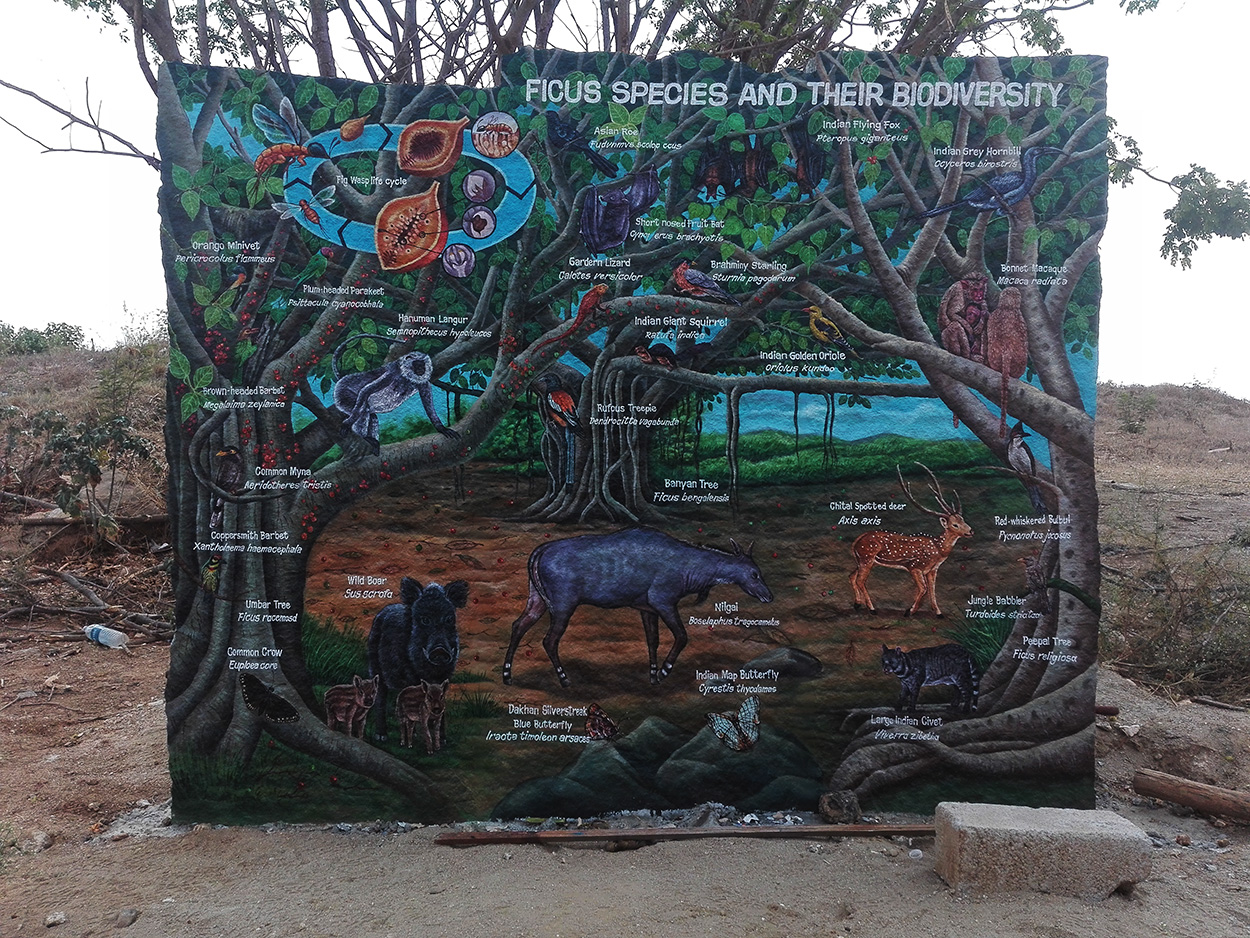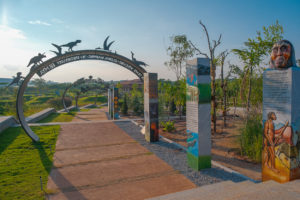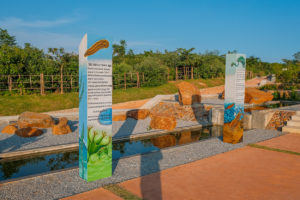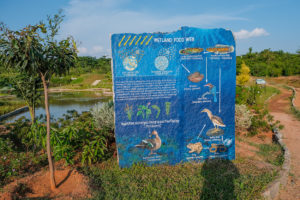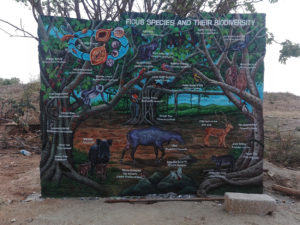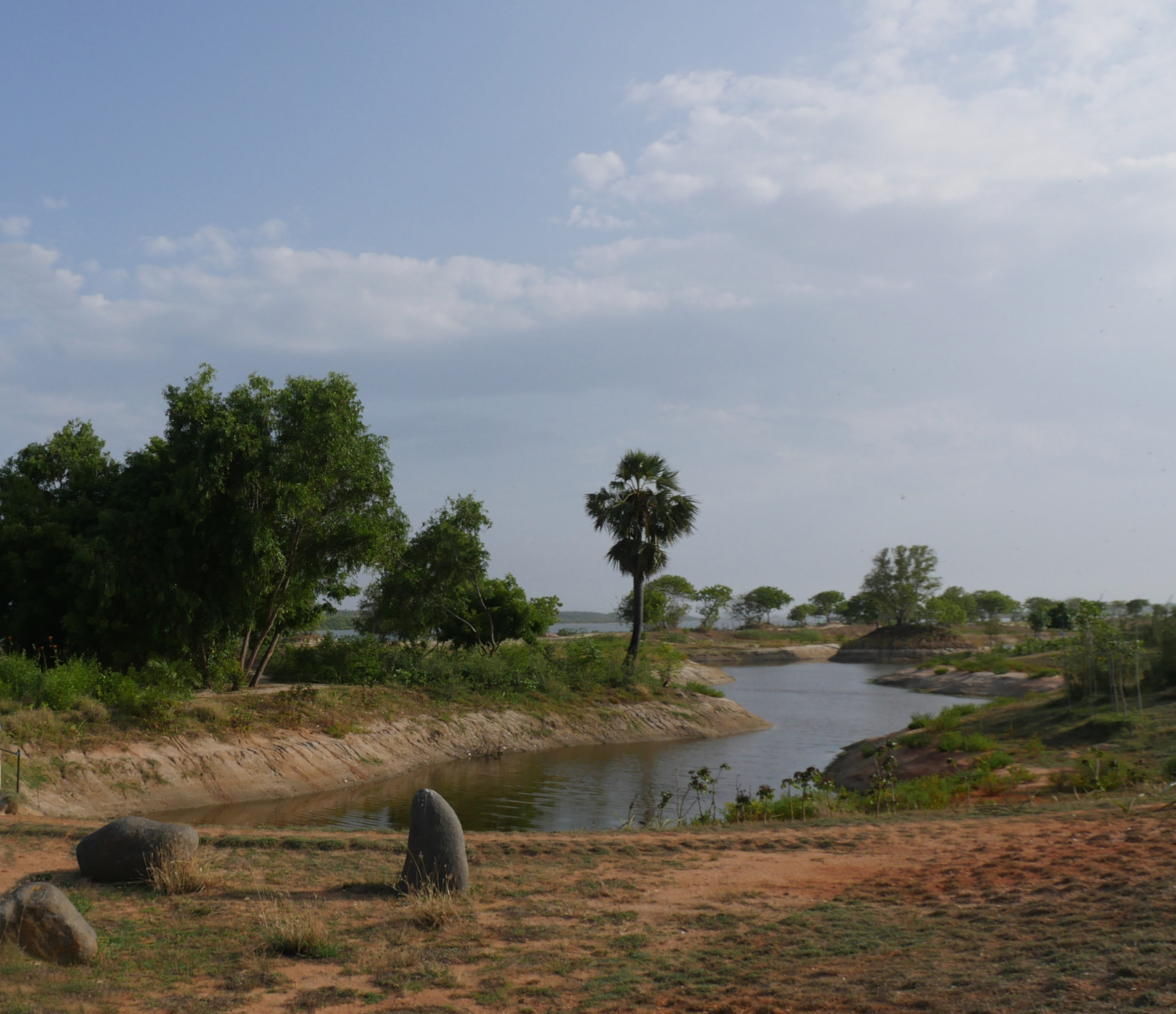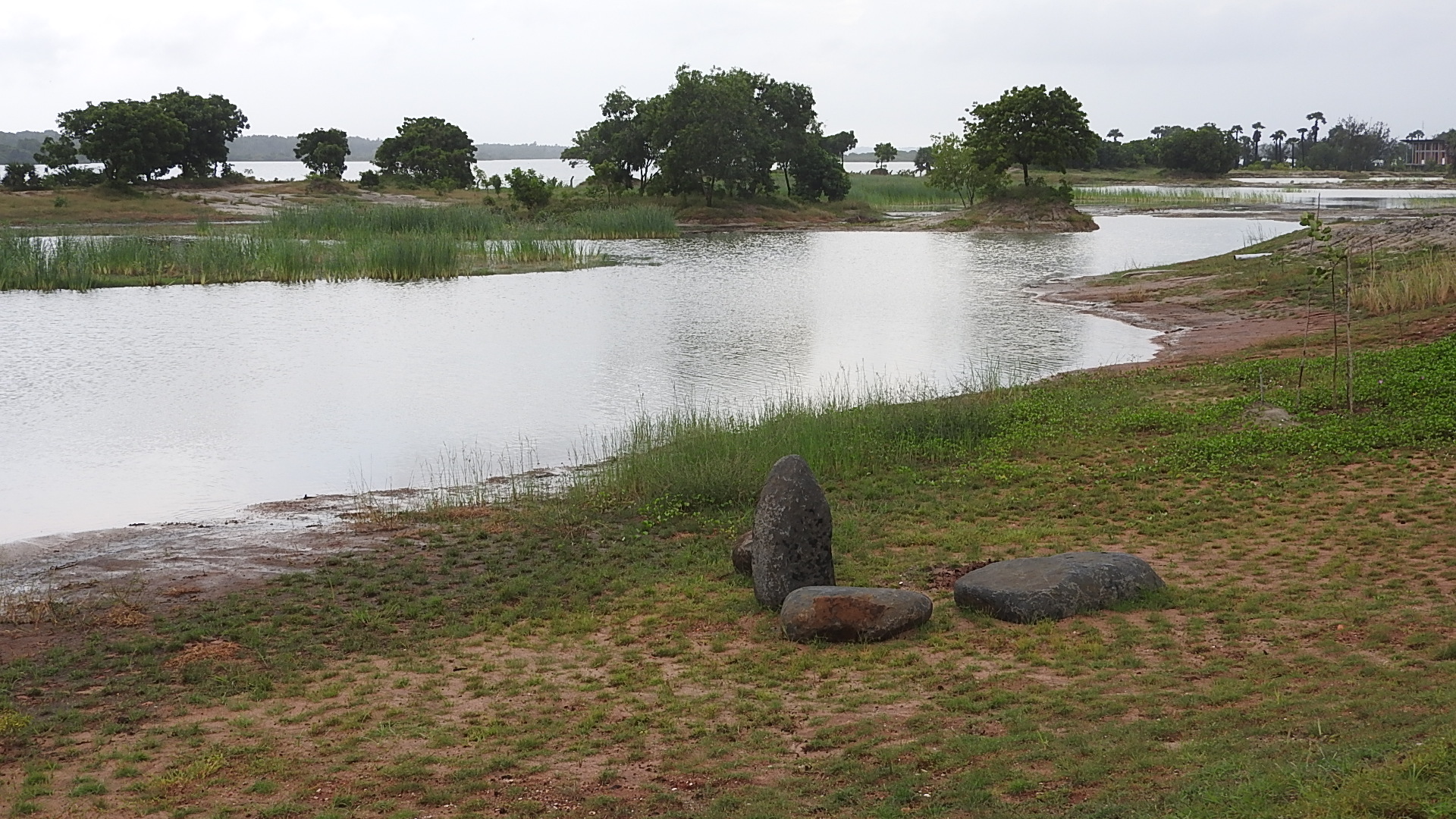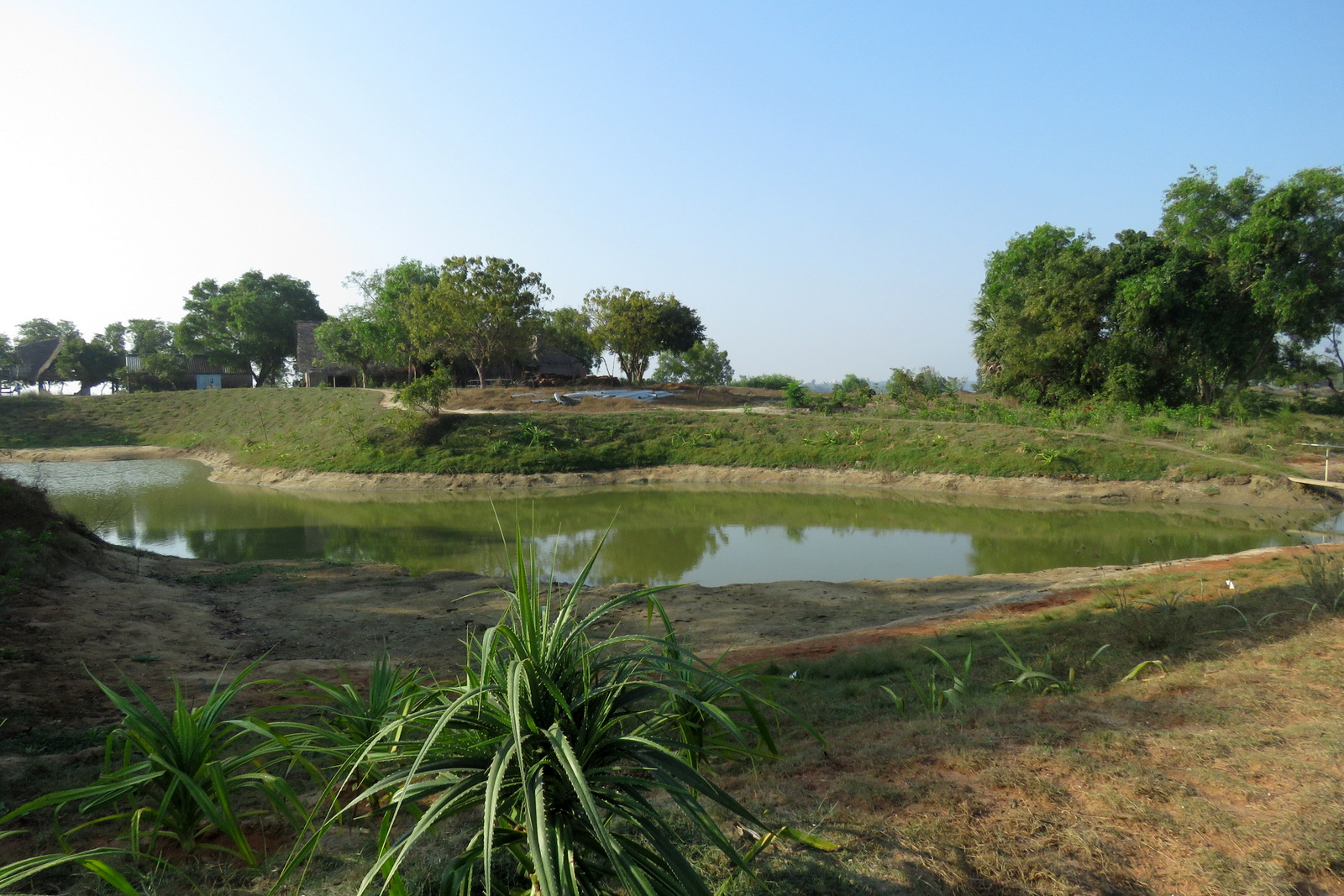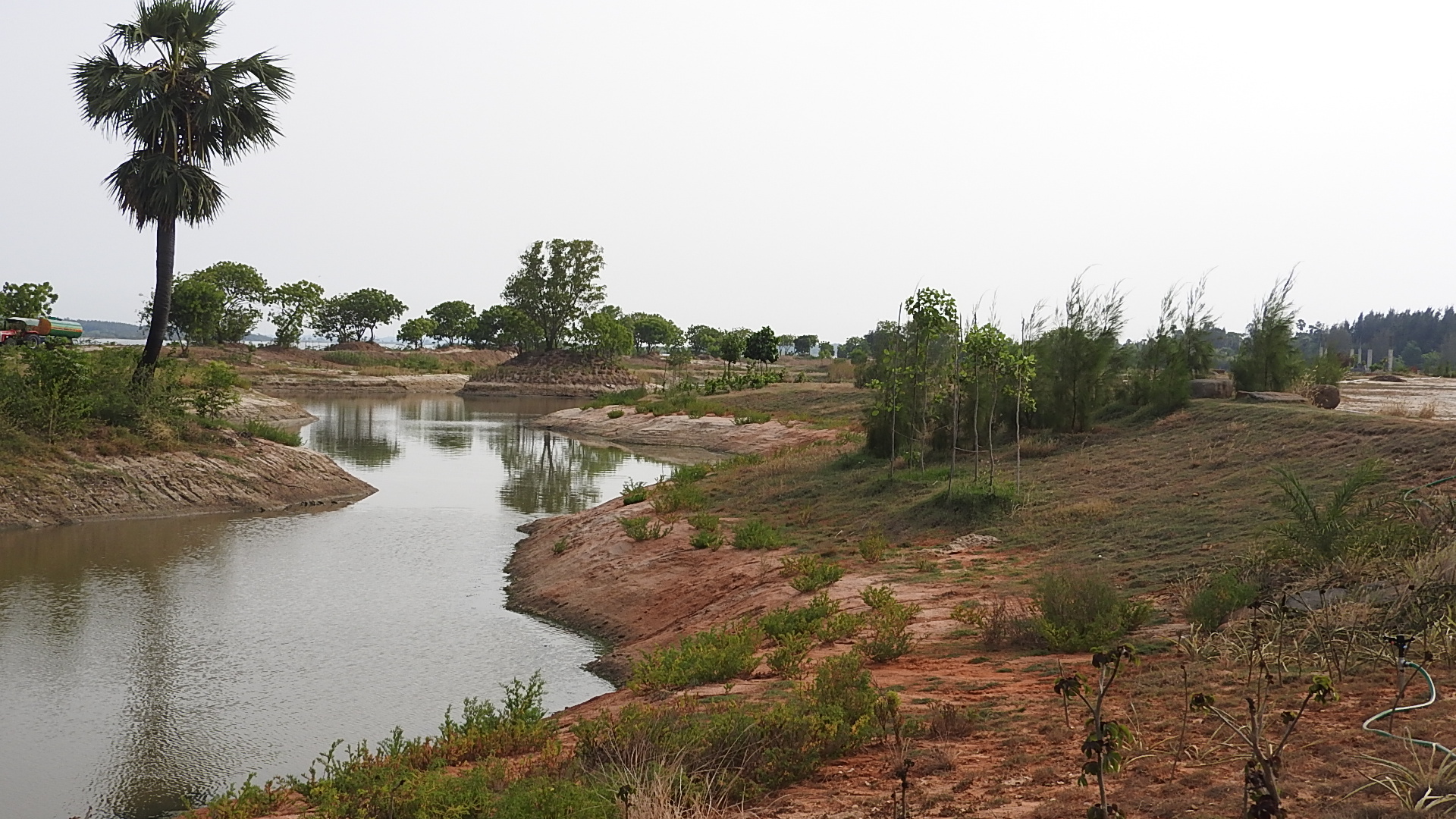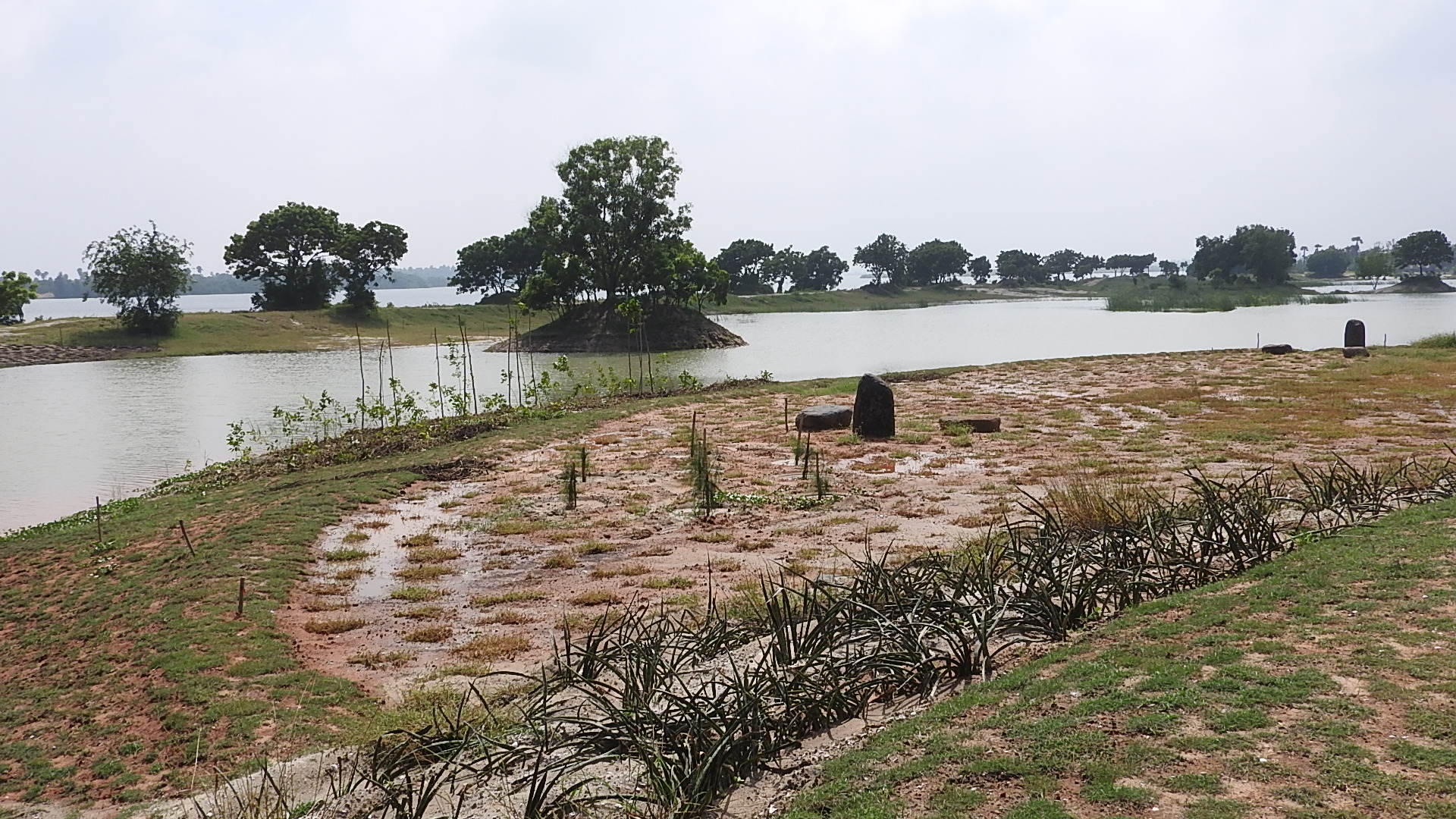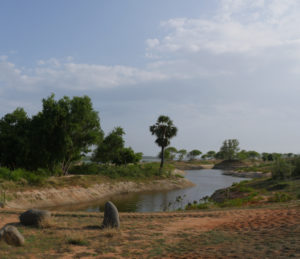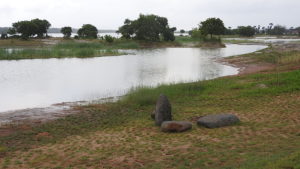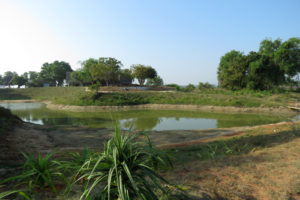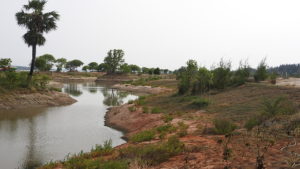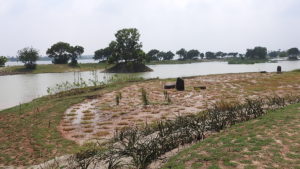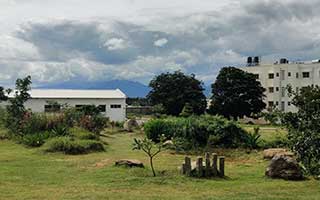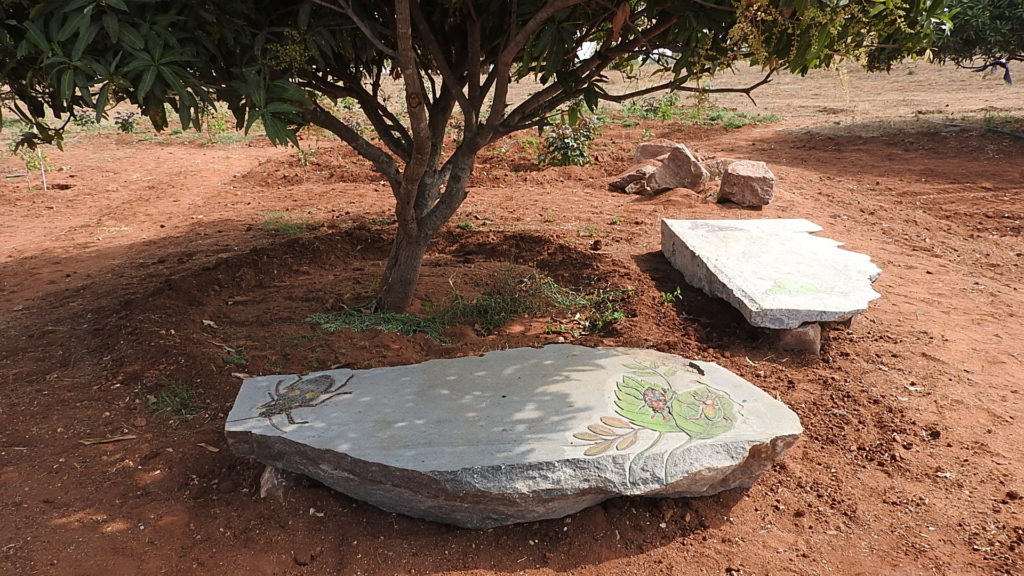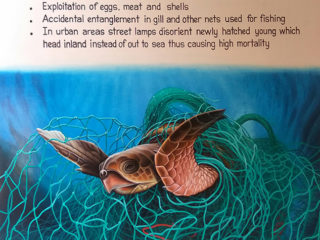TOYOTA KIRLOSKAR MOTORS (TKM)
TKM has a very impressive factory laid out over 500 acres at Bidadi industrial area along the Bangalore – Mysore Highway. Here 25 acres have been set aside as an ECOZONE principally to sensitise employees of TKM and other corporates in Bidadi, their families and children from surrounding schools about environmental and conservation issues. PFC was contracted to execute the Artwork for the site which involved interpretation signage, carving and painting gigantic pillars for a timeline walk, 3D carvings of keystone animal species, 2D carving on boulders depicting endangered plant species and artistically designed mosaic seating. This venture has been very rewarding and it was a pleasure to be appreciated by the top executives and CEOs of Toyota, many of whom had flown down from Japan to attend the opening ceremony of the park.
Learn to spin cotton yarn with a Peti Charkha
Dates 10 – 12 September 2018
Course Facilitator
Madhav Sahasrabudhe is a mechanical engineer based in Pune. He was introduced to spinning by Dadasaheb Bhosale nearly a decade ago and has been spinning ever since and also teaching people how to use a charkha. Madhavji has been associated with Nai Talim for the last 5 years, where he teaches physics and maths to 9th and 10th std students, and also helps them refine their spinning skills. (Nai Talim is a Gandhian system of activity-based learning with a premise that work and knowledge are not separate.) He has authored a book called “Art of Spinning”, which can be downloaded here: http://www.mkgandhi.org/swadeshi_khadi/Charkha_Manual.pdf
Cost Course Fee
We are offering this course on a ‘gift-economy’ model for Aurovilians. For non-Aurovilians, the suggested contribution is Rs 1500. Charkha would cost an additional Rs 2,000 for all.
A total of 15 registrations will be accepted for this workshop.
Simple vegetarian lunch and snacks will be provided on all three days.
Accommodation
Accommodation should be arranged by the participants. We can assist in finding accommodation in Auroville or Pondicherry. Smoking, drinking, narcotic substances and disposable plastic are strictly prohibited.
Registration
If you would like to buy a charkha before the workshop, please register before 31 August.
If you have any queries, please write to pitchandikulam.outreach@auroville.org.in or call +91 94491 91233.

Alambara Resorts
Alambara Resorts, the property of TT Groups, on the Yedayanthittu estuary near Kadapakkam
combined landscaping and planting an area of 40 acres.
D.J. Academy, Coimbatore
D.J. Academy in Coimbatore was a barren land. The main focus of the work here was shaping and planting an area of 25 acres and particularly creating water retention landscapes.
Marine Turtle Centre

The Turtle Interpretation Centre at Marakkanam is a project undertaken at the behest of the Department of Forest and Wildlife, Tamil Nadu. The centre has interpretation signage on plywood that combines both text and imagery concerning sea turtles found in India, especially the Olive Ridley Turtle which inhabits coastal waters of the East Coast of India.
Students visit to Kaluveli bioregion
 Students are taken on an exposure visit to the bio-region. An introduction is given in the class room a week before the visit. During the visit forests and wetlands are mainly covered. The students are exposed to the biodiversity within these ecosystems. Some of the unique fauna are discussed in detail with children, eg. bats, flying fox and migratory birds of the wetlands. Forests with tropical dry evergreen species and sacred groves in the villages are also covered during this trip.
Students are taken on an exposure visit to the bio-region. An introduction is given in the class room a week before the visit. During the visit forests and wetlands are mainly covered. The students are exposed to the biodiversity within these ecosystems. Some of the unique fauna are discussed in detail with children, eg. bats, flying fox and migratory birds of the wetlands. Forests with tropical dry evergreen species and sacred groves in the villages are also covered during this trip.
Environment Awareness programme through Theru Koothu
 Students perform Theru Koothu– a traditional theater form, taking environmental themes. These themes could include aspects concerning water pollution, importance of forests, waste disposal. Conducted with costume, music and performed for a larger audience, these plays attract many students and village people. They are also appreciated by the Education department, reported in newspapers giving the event a larger coverage.
Students perform Theru Koothu– a traditional theater form, taking environmental themes. These themes could include aspects concerning water pollution, importance of forests, waste disposal. Conducted with costume, music and performed for a larger audience, these plays attract many students and village people. They are also appreciated by the Education department, reported in newspapers giving the event a larger coverage.
School children mapping their village
 In this activity, the students are taught about creating a base map of their village. They learn to draw out main community infrastructure like roads, schools, playground, water bodies, shops, markets, temples and health services. They identify places where big trees are and streets with houses. These maps are drawn on the ground with chalk or color powders. Elders in the village are asked to comment and make corrections. Children learn how to map using direction, scales and codes. They also learn about their village through this activity.
In this activity, the students are taught about creating a base map of their village. They learn to draw out main community infrastructure like roads, schools, playground, water bodies, shops, markets, temples and health services. They identify places where big trees are and streets with houses. These maps are drawn on the ground with chalk or color powders. Elders in the village are asked to comment and make corrections. Children learn how to map using direction, scales and codes. They also learn about their village through this activity.
Know your Herbs – Herbal Class for Students
 This activity is conducted with students in schools to build awareness on local herbal plants and their uses. They practically identify species found commonly in the school campus and in the school’s herbal garden. Some games related to medicinal plants are conducted. Group discussions and outdoor activities keep children interested. Education materials like posters, cards and photos are used for this activity. Children also learn how to make herbal teas. The learning outcomes are related to knowledge on local herbs and their uses for common ailments. There is increased motivation to grow medicinal plants in home and school gardens.
This activity is conducted with students in schools to build awareness on local herbal plants and their uses. They practically identify species found commonly in the school campus and in the school’s herbal garden. Some games related to medicinal plants are conducted. Group discussions and outdoor activities keep children interested. Education materials like posters, cards and photos are used for this activity. Children also learn how to make herbal teas. The learning outcomes are related to knowledge on local herbs and their uses for common ailments. There is increased motivation to grow medicinal plants in home and school gardens.
